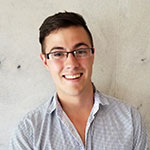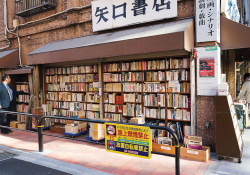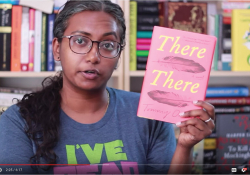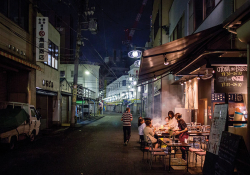The Big Thing: A Conversation with Masatsugu Ono
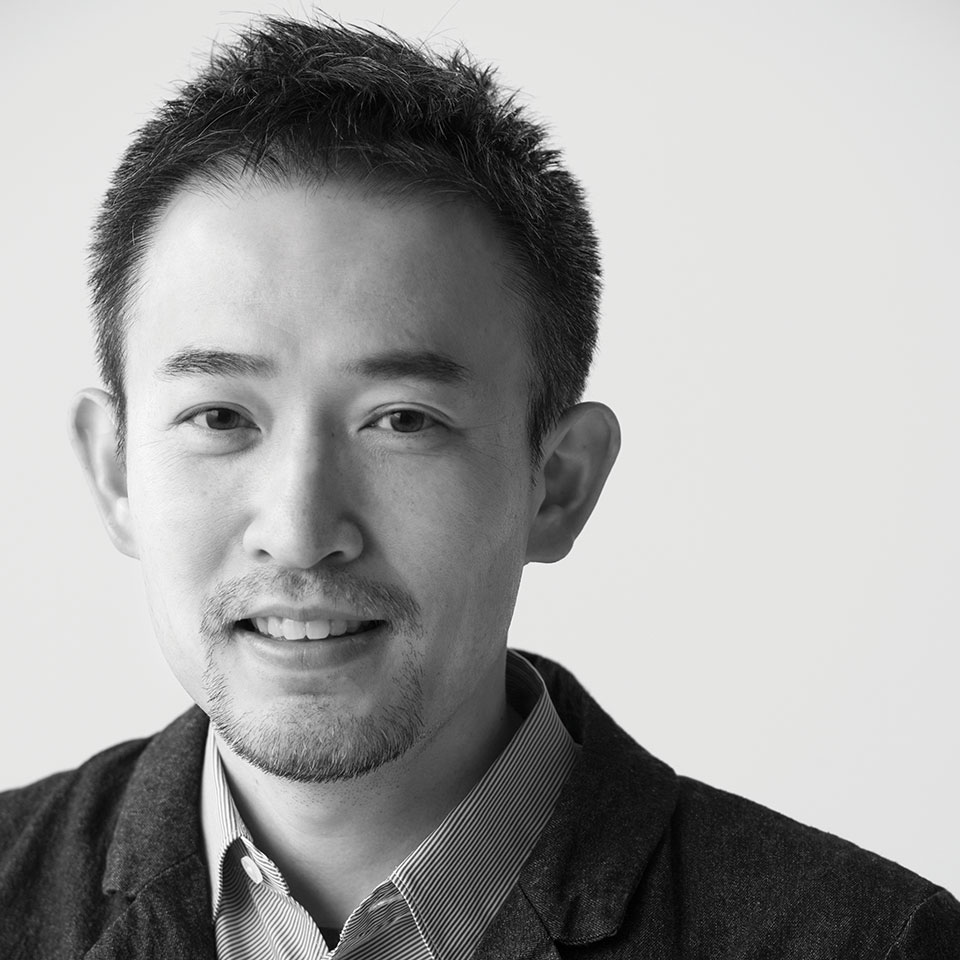
Masatsugu Ono is a Japanese writer based in Tokyo and the author of numerous novels, including Mizu ni umoreru haka (The water-covered grave), which won the Asahi Award for New Writers, and Nigiyakana wan ni seowareta fune (Boat on a choppy bay), which won the Mishima Yukio Prize. In 2015 he received the Akutagawa Prize, Japan’s highest literary honor, for his work 9 Nen Mae no Inori (A prayer nine years ago). In addition, Ono is an accomplished translator who has translated several works from the French.
Lion Cross Point, a translation of his work by Angus Turvill, was published in April 2018. Here, he discusses some of the themes central to his work, such as the prominence of place and the power of compassion, and some of the major influences on his writing.
Reid Bartholomew: Jeffrey Angles, 2017 Yomiuri Prize recipient, has called you “one of the most important Japanese novelists of the post-Murakami generation.” What does it mean to you to be considered a part of this “post-Murakami generation”?
Masatsugu Ono: Jeffrey Angles is right to use the term “post-Murakami generation.” I think Murakami has changed the regime of literary Japanese language. When he first started publishing fiction at the end of the 1970s, his style—in which some critics saw the influence of Kurt Vonnegut Jr.—was both new and unique in its lightness and gentle humor. At the time his style was considered rather nonliterary, especially when compared to the seriousness of modern Japan’s literary tradition. Looking back on the history of postwar Japanese literature, we can see that Murakami made a clear mark in it: there is the pre-Murakami period and the post-Murakami period. Born in 1970 and having first started to publish at the very beginning of this century, I can say that I’m writing in the post-Murakami period, in other words, in the Japanese literary scene (or “literary field” in the Bourdieusian sense of the term) strongly marked by the work of Murakami.
 Bartholomew: Two Lines Press describes Lion Cross Point as “reminiscent of Kenzaburō Ōe’s best work.” What parallels do you see between your own writing and his?
Bartholomew: Two Lines Press describes Lion Cross Point as “reminiscent of Kenzaburō Ōe’s best work.” What parallels do you see between your own writing and his?
Ono: I myself was surprised by this comparison. Most of Ōe’s stories take place in two places: Tokyo, where the narrator lives with his family, and a small village situated in a valley on Shikoku Island. Ōe says there are two important subjects for him: the writer’s family life with his handicapped son, and literary investigations into the local popular culture of his pays natal (homeland), which he calls a “small peripheral place.” I have been very interested in the latter subject. Most of my stories take place in a small fishing village modeled on where I grew up.
Bartholomew: I understand you’ve spent a lot of time studying French philosophy and literature. What piqued this interest?
Ono: In the eighties and early nineties, in the literary milieu, the presence of so-called French high theory was very strong. The works of intellectuals such as Foucault, Deleuze, Derrida, Barthes, and others were widely read by students in the humanities. I was also interested in the work of French anthropologist Lévi-Strauss. No doubt influenced by this air du temps, I was very keen to learn French so that I could read these intellectuals in their original language.
Bartholomew: What aspects of that background with French philosophy and literature have worked their way into your writing?
Ono: I worked on Edward W. Said’s Orientalism for my BA thesis, without knowing that Ōe was a great reader of Said. They are friends: as you know, the title of Ōe’s last and probably final novel is a kind of homage to Said’s book On Late Style. For my MA, I worked on Michel Foucault, in particular on the role of literature in his work. For early Foucault, literary texts were his preferred materials for analysis. However, from the mid-1960s, he turned his back on literature. In my MA project, I tried, in vain, to explain the reason for his abandonment of literature. There were days when I couldn’t write even a single page, so I started to write a short story about my hometown. So perhaps it can be said that I started to write thanks to my study of French philosophy.
Bartholomew: I read that you have translated works of literature by Édouard Glissant and Marie NDiaye. Has having that experience with translation impacted your writing in any significant way?
Ono: Translation is good practice for reading a text precisely. The experience of having done translation often made me consider if I translated this or that phrase of my own writing into French, would the effect on the reader remain the same, or would it somehow be diminished?
Bartholomew: Do you read any of the translations of your own works?
Ono: I don’t read the whole translated book. But in the case of my English translations, I do take a look at the places in the text that I imagine would be particularly difficult to translate.
Bartholomew: In Lion Cross Point, you decided to write inside the mind of a fourth-grade child named Takeru. What aspects of that perspective were you most concerned with emulating?
Ono: When I started to write this novel, I got the feeling that this story had to be told from his point of view. I could have written from a first-person perspective, but I didn’t do that because I have never experienced the same hardships as Takeru. Therefore, writing this novel was for me an attempt to get as close as possible to his mind so that I could feel his suffering. I wanted to write in such a way that the reader would understand that there were a lot of things about Takeru that not even the author could grasp. I didn’t feel like I was “creating” a character. To me, Takeru is there just like a real person.
Bartholomew: In Lion Cross Point, you focus a lot on the importance of place and the way that it influences characters. In fact, it isn’t just the physical attributes of the place that have an impact, but the history of the place seems to actively engage the characters. Tell me a bit about your decision to make place such a prominent factor in this story.
Therefore, writing this novel was for me an attempt to get as close as possible to Takeru’s mind so that I could feel his suffering.
Ono: As I said above, most of my stories take place in a small seaside village modeled on my childhood village on the east coast of Kyushu Island. The village where I grew up is known for its deeply indented coastlines, and I have always been interested in writing about small places in the countryside rather than about cities. I have been very influenced by my own childhood experiences, though I left the village when I was eighteen. It is very common to say that the place where we grew up continues to have an influence on us, on the way we are. A place is not only a geographical site. It is woven from the people who live there, each with his or her own complex history, as well as from the history and culture of the place itself. As you suggest, the place in which this story is set is also one of the main characters in the story.
Bartholomew: The story incorporates some fantastical elements on top of reality, such as things that only Takeru can see. What made you include this dimension in an otherwise very real story?
Ono: I think these “fantastical” elements are very real for Takeru. As I was writing, I felt that the boy really saw them. So it was quite natural for me to include this dimension. When we were children, we saw and heard things differently from the way we do now: our perception of the world was very different. It may well be that, as adults, we are just not aware of the elements that surround us, which are very real but simply not visible to our eyes.
Bartholomew: At the 2012 PEN World Voices Festival during a conversation you had with Stuart Dybek, you spoke about how the ocean of your hometown was almost confining to you, something you always wanted to go beyond. From what I’ve seen, however, it’s a constant presence in your writing. Why do you choose to return there in your writing?
It may well be that, as adults, we are just not aware of the elements that surround us, which are very real but simply not visible to
our eyes.
Ono: Well, my small hamlet is situated on one of many coastal inlets that form the coastlines of my hometown. The sea itself seems enclosed by the surrounding hills. This landscape gave me a sense of confinement when I was a child. Even though the closeness of human relationships in a small town could be suffocating at times, I liked talking with the older inhabitants and listening to them talk to one another. But this natural confinement made me dream of ailleurs, another place. I always felt myself torn between the attachment I felt to my homeland and the desire to go farther afield.
Bartholomew: Does this sense of confinement hold true for Takeru, who has come from a very literally confining place in the city to this small fishing village?
Ono: It is Wakako, Takeru’s mother, who feels deeply this sense of confinement. I suppose Takeru felt himself confined when he was in a big city with his mother and his elder brother, but it’s no longer the case once he moves to the fishing village.
Even though the closeness of human relationships in a small town could be suffocating at times, I liked talking with the older inhabitants and listening to them talk to one another.
Bartholomew: Tell me a little bit about your fascination with water—it’s a motif that has appeared throughout many of your works.
Ono: I don’t know why. I’m not a good swimmer. I remember almost drowning in the sea when I was around ten years old. My friend and I thought that an approaching typhoon was still quite far off. The sky was clear. The see appeared calm. But . . .
Bartholomew: I’ve noticed that many of the adults are described as stooped over or having hunched backs. Was that simply a physical description that accompanies living out in the country, or were you deliberately trying to hint at a burden these characters were carrying?
Ono: I hadn’t noticed that myself, but perhaps it’s because I have a tendency to stoop myself (in Japanese we refer to this as having a cat’s back). But your interpretation is very interesting.
Bartholomew: There is a great deal of focus on physicality in general when describing people. The only character that we get much of a look into the internal world of is our Takeru, and he is often as confused about the inner worlds of others as we are.
Ono: I agree with you. For Takeru, the boundary between real and unreal, inner world and outer world, remains ambiguous. He seems to be haunted by an unconscious desire to eliminate the distance between him and his elder brother.
Bartholomew: Takeru always seems to be at the mercy of someone else, and, thankfully, there is always somebody compassionate enough to stretch out a hand in the darkest of times. That said, every one of those characters ends up having to leave. Is compassion just a brief respite from the pain of life, or is it something more to you?
Ono: Well, I hope those hands form a chain even if each of them is being given only momentarily to those who suffer. Don’t you think the fact that someone thinks of you even for a brief moment is in itself something encouraging and delightful? Compassion, a tender attention to others, is a sort of prayer for others.
Bartholomew: Throughout the novel, there are a lot of references to what Takeru calls “the big thing,” which seems to link everyone together. In some cases, it appears to be a religious element, but at other times it seems like something more natural and innate within people. Could you elaborate a little more on the significance of this “big thing”?
Ono: I think it is a sort of wholeness that envelops all of us along with all other forms of existence in this universe. It can certainly include a religious dimension. I’m wondering if it may be like a wholeness we feel when we listen to the music of Bach: this music is of course religious, but what we are given always goes beyond. Takeru doesn’t have enough words to describe what he feels or what he is exposed to. For him, it is nothing more than “the big thing.”
January 2018
